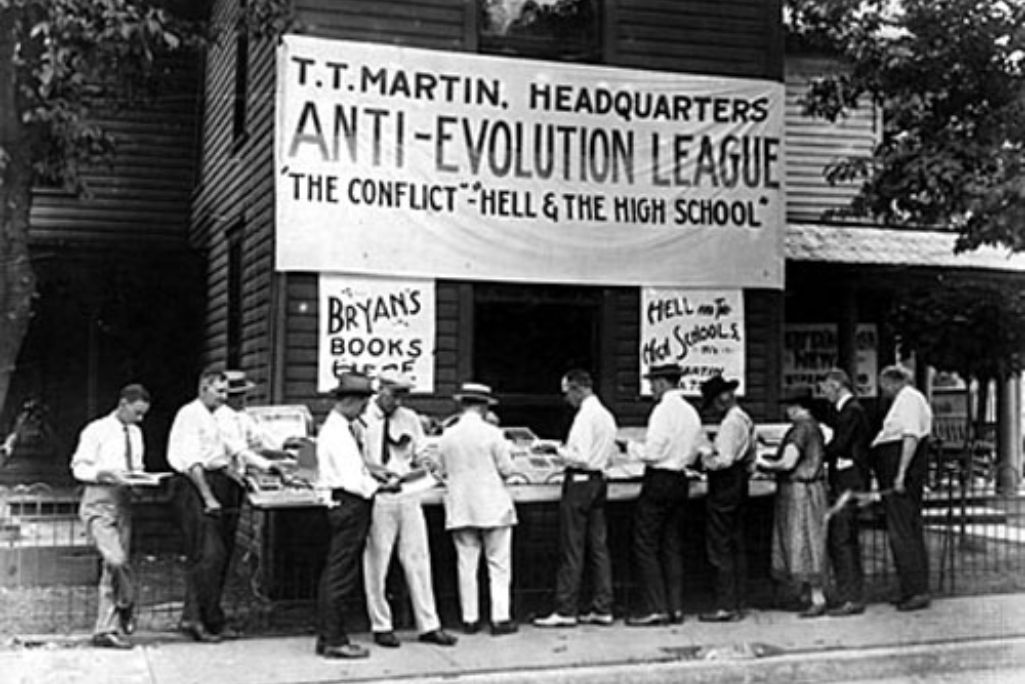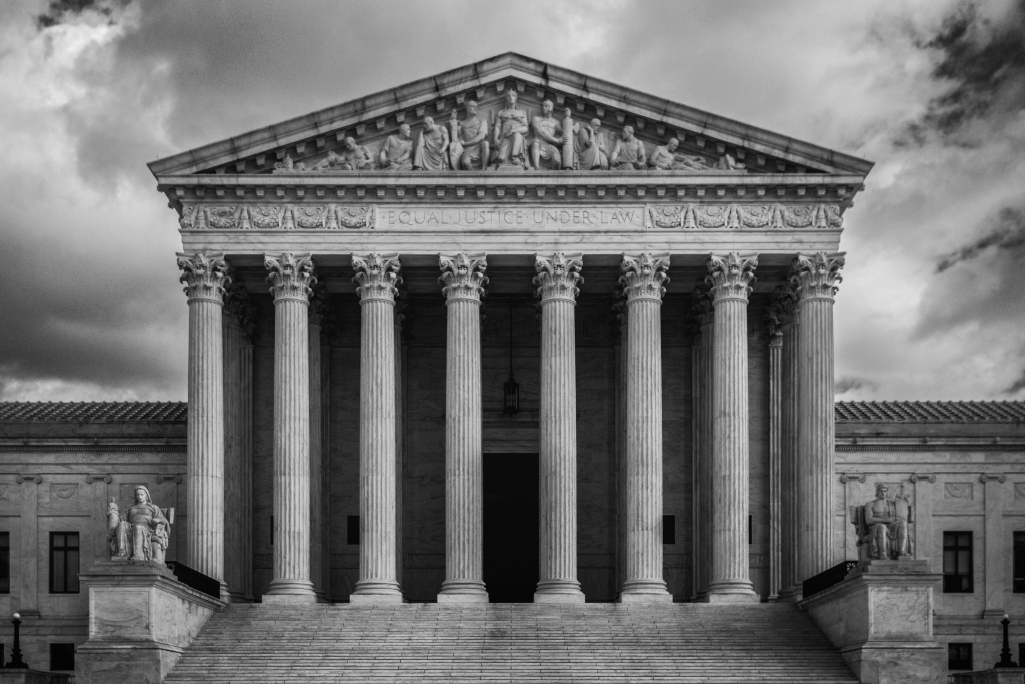
The conflict between evolutionists and creationists took over the town of Dayton, Tenn., during the 1925 trial of schoolteacher John Scopes.
Ask most Americans to name the “Trial of the Century,” and they’ll likely say the O.J. Simpson case. I still remember where I was when the verdict came in, driving down Highway 90 in Gulfport, Miss., when the radio announced, “Not guilty.”
That trial was unforgettable, but it didn’t change how most people lived.
I would argue the real “Trial of the Century” happened 100 years ago this summer in Dayton, Tenn. The Scopes “Monkey Trial” wasn’t just a courtroom drama, it reshaped how Americans think about science, faith, skepticism, education and freedom.
The case began when the newly formed American Civil Liberties Union decided to challenge Tennessee’s Butler Act, which banned the teaching of “any theory that denies the story of the Divine Creation of man as taught in the Bible” and “man has descended from a lower order of animals” in schools.
Dayton’s local leaders saw a chance to put their town on the map. They welcomed the legal battle, hoping it would bring attention and visitors. It did.
John T. Scopes, a young substitute teacher at Rhea County High School, faced a misdemeanor charge with a small fine for teaching evolution. Two famous out-of-state lawyers showed up to argue the case. William Jennings Bryan, a former presidential candidate and devout Christian, joined the prosecution. Clarence Darrow, one of the best-known defense attorneys of the time, represented Scopes. Their clash drew national attention.
For the first time in U.S. history, a trial was broadcast live on radio. Never before had millions of Americans listened to unfamiliar voices in their homes. Dayton, a town of less than 2,000 residents, filled with more than 1,000 visitors each day to watch the trial. Journalists from across the country flooded the streets.
Years later, while I studied at Bryan College, named after William Jennings Bryan, I befriended an elderly woman named Mrs. Schofner who had lived through the trial. She described the crowds, the chaos and the overwhelming feeling of a town turned upside down. Her stories reminded me that history isn’t just read in books. It’s lived by real people.
The Tennessee General Assembly repealed the Butler Act in 1967. Judges ruled that the law violated the First Amendment’s protection of free speech. I agree with that decision. People who support evolution deserve a voice, just as those who believe in creation do. Free speech should protect both.
But now, a century later, I wonder: Are we better off for drifting so far from the faith that once helped shape our country? Have we made our society more caring for one another by caring less if there is a God? How can we expect our children to embrace morals and justice if there is not a higher being?
Not everyone will embrace faith in something they can’t prove, such as the biblical creation story. But we should seriously consider what we’ve lost, culturally, legally and socially, by replacing the foundation that shaped our laws, schools and communities with skepticism.
Even Richard Dawkins, one of the world’s most outspoken atheists, recently said he supports “Cultural Christianity.” Though he still doesn’t believe in God, he values the traditions and morals Christianity gave to the Western world. He’s asking what might replace those values if they disappear.
Why does that matter? Because when a society loses belief in something greater than itself, it starts to drift.
Without “Thou shalt not steal,” we end up with weakened laws, such as California’s Proposition 47, which reclassified shoplifting in values less than $950 as a misdemeanor.
Without “Thou shalt not kill,” we lose sight of the value of human life and the founding truth that “all men are created equal” and “endowed by their Creator with certain unalienable Rights,” including life, liberty and the pursuit of happiness.
Without “Thou shalt not lie,” trust erodes across our institutions.
In his novel “Alamut,” Italian author Vladimir Bartol wrote: “When nothing is true, everything is permitted.” That’s not progress. That’s decay.
Faith played a major role in ending slavery. It inspired the Civil Rights Movement. It built hospitals, schools and charities that still serve people today. Evolution and atheism didn’t create those institutions. Faith did.
Even if you don’t believe in God, consider what belief has built. No other creature sacrifices its life for others the way humans do. I would die for my children. I would lay down my life for my wife, even though we don’t share the same DNA. Love and sacrifice aren’t just instincts; they’re something deeper.
Skepticism may win out in your heart over faith today. But for the sake of our families, our neighborhoods and our country, I hope we can once again embrace the value of faith. Faith in God helped lay the foundation of our great republic. Now, it is our responsibility to ensure that both our nation and our faith in God endure.
(EDITOR’S NOTE — Rep. Greg Martin represents Tennessee House District 26, which includes parts of Hamilton County. He is a 1993 and 1987 graduate of New Orleans Baptist Theological Seminary.)


